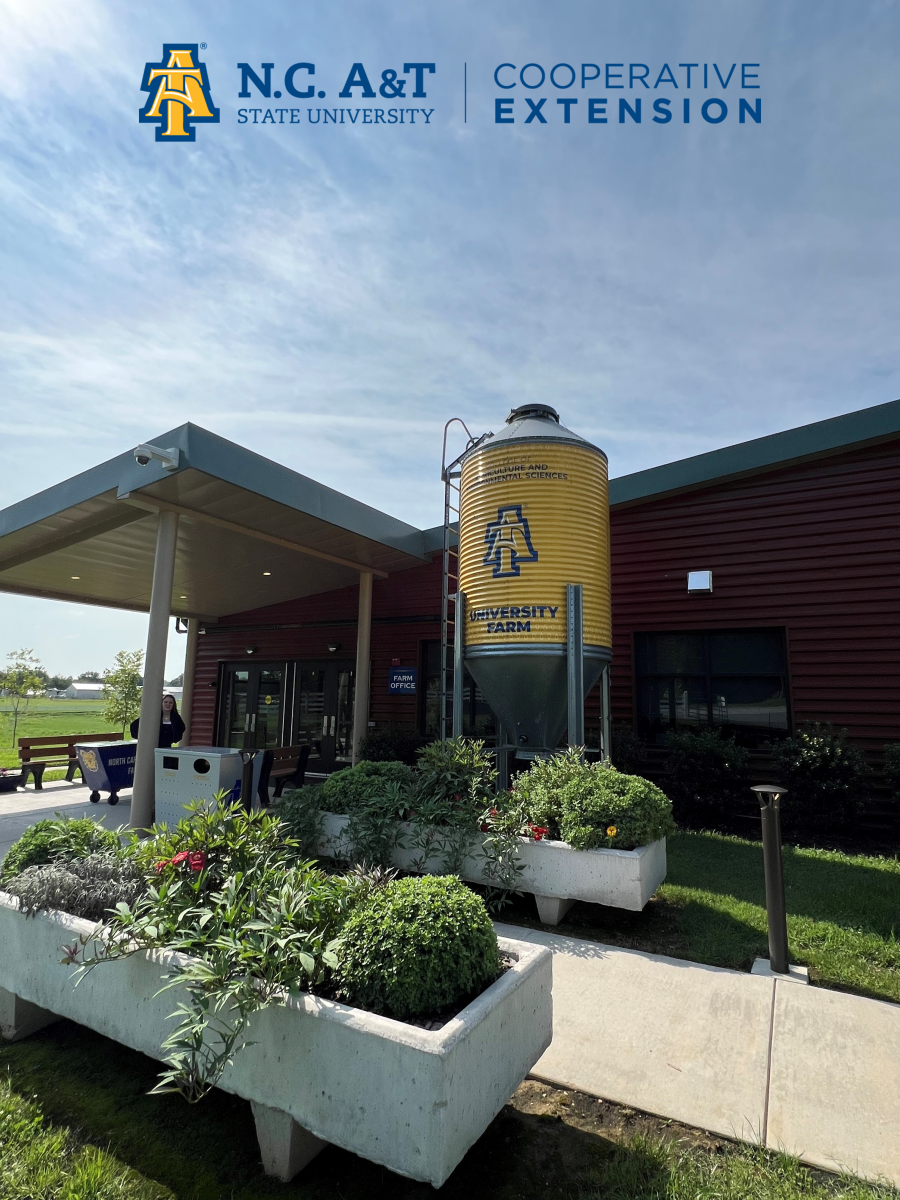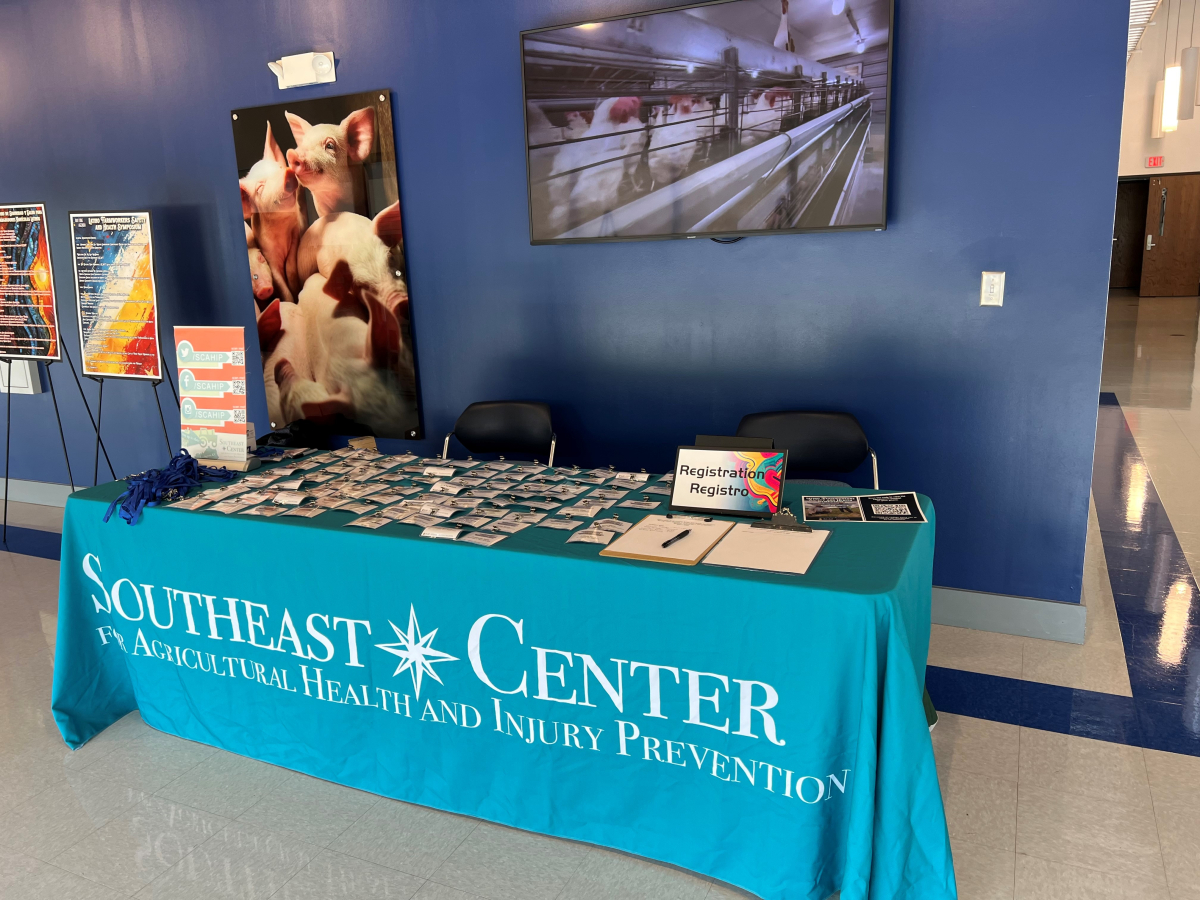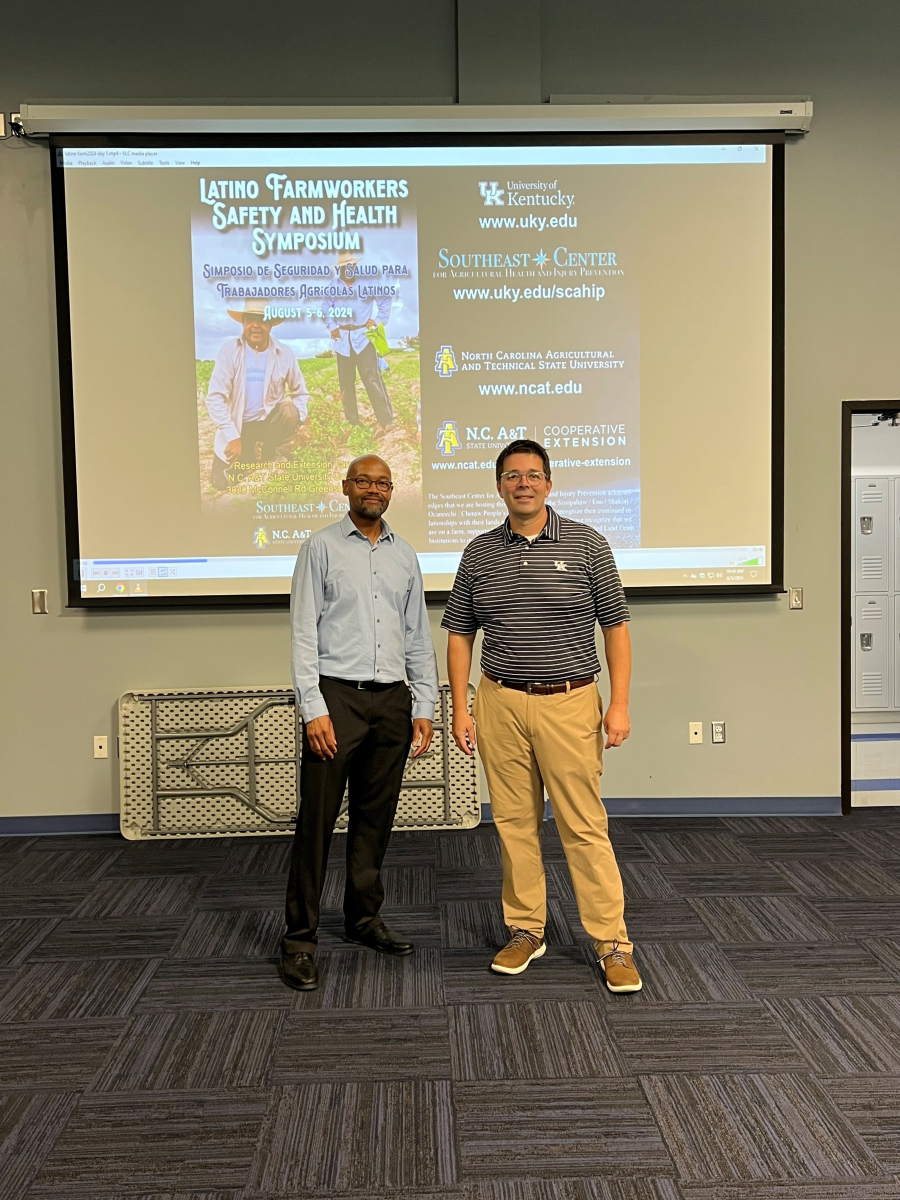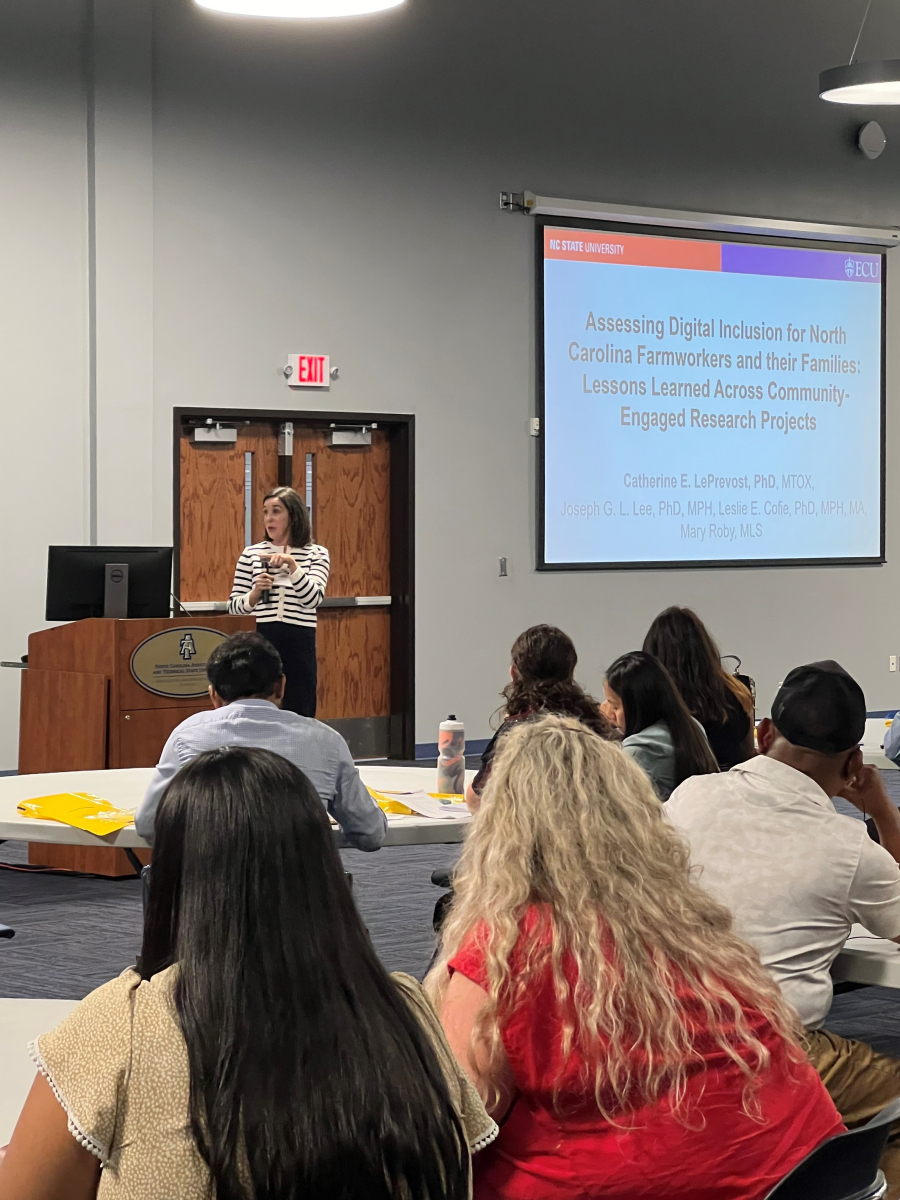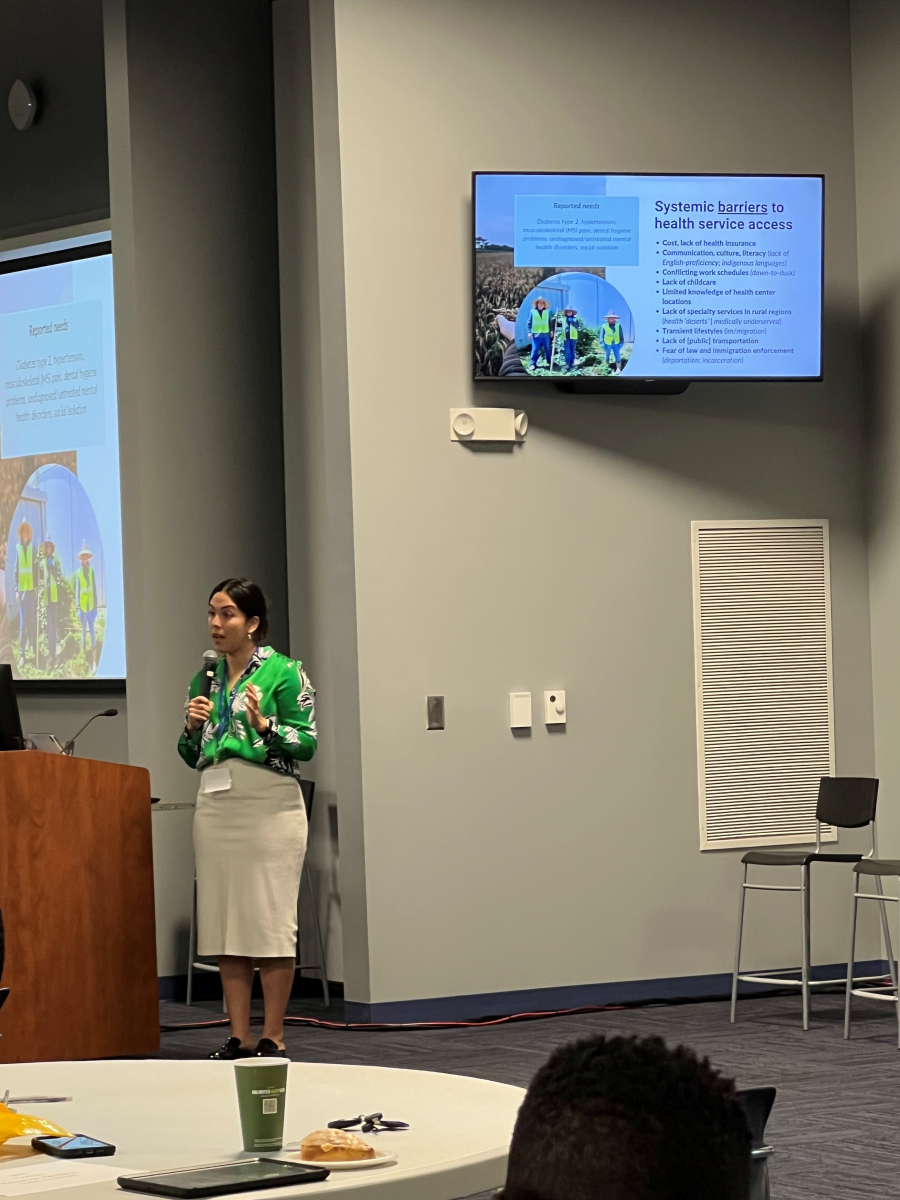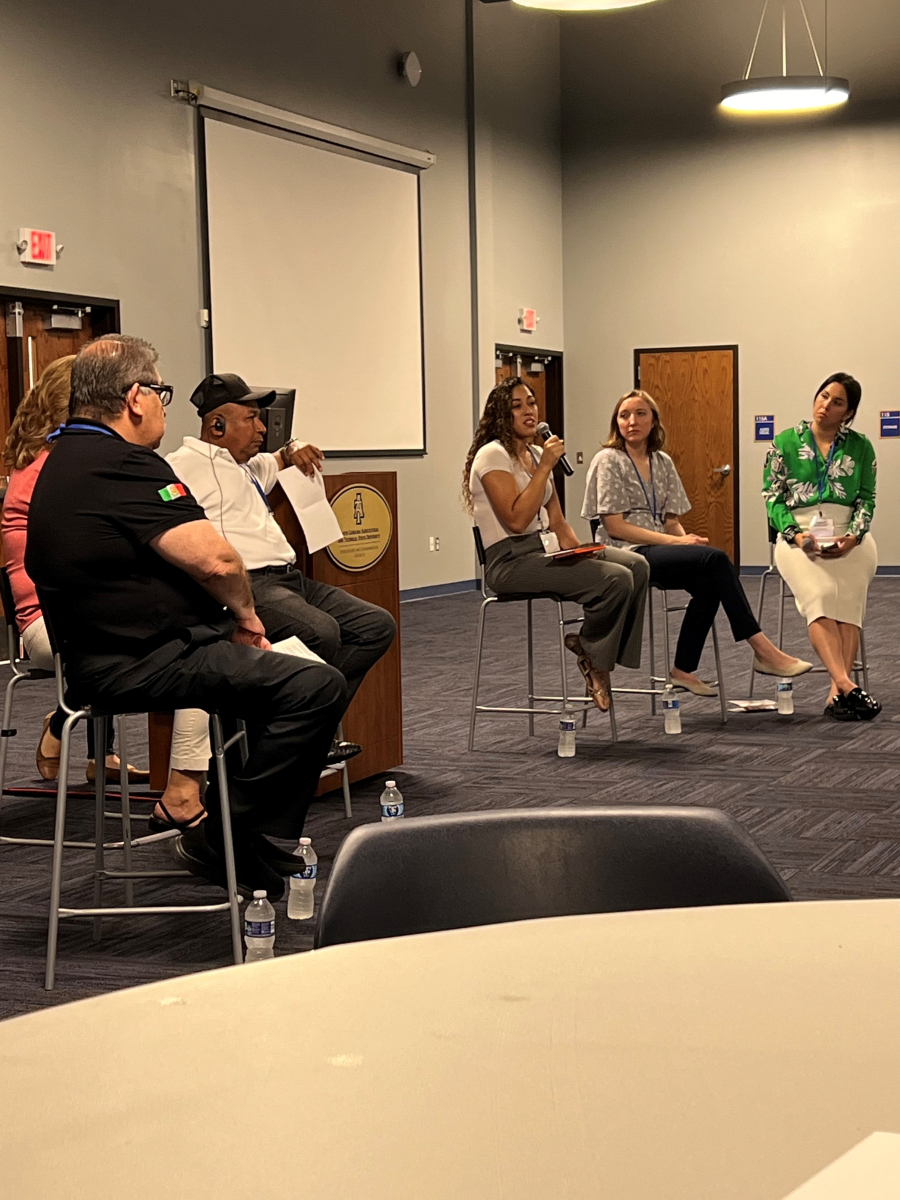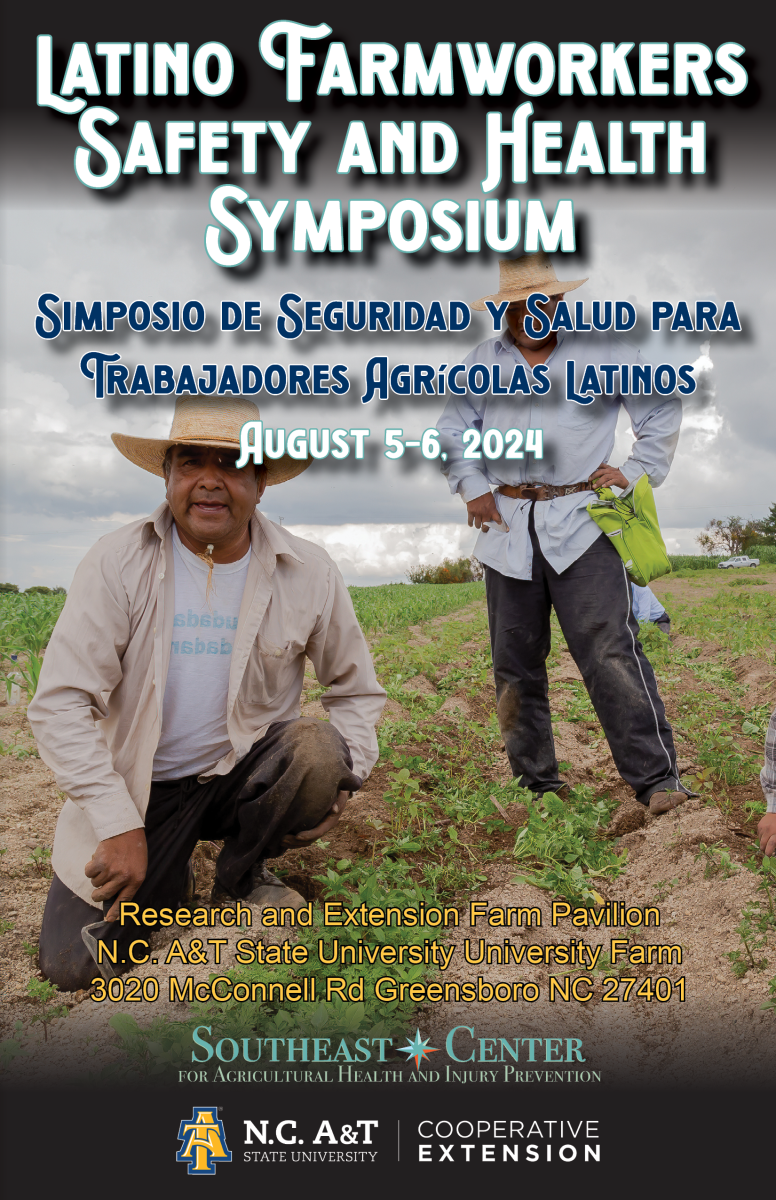Latino Farmworker Safety and Health Symposium
Click here to download presentations from the 2024 symposium!
Approximately 100 attendees from 10 states participated in the 2024 Latino Farmworker Safety and Health Symposium on August 5th and 6th in Greensboro, North Carolina. The University of Kentucky’s Southeast Center for Agricultural Health and Injury Prevention (SCAHIP) partnered with North Carolina Agricultural and Technical State University (NC A&T) to host this Symposium at the NC A&T Farm Pavilion. Farmworkers, agriculture extension agents, researchers and others interested in addressing the needs of Latino farmworkers gathered to gain knowledge from presenters and network with farmworker safety experts. The conference planning team coordinated by Dr. Stacy Vincent, Dr. Kenneth Jones, and Ashley Rockwell of SCHAHIP strived for inclusion throughout all aspects of the Symposium. Full Circle Translation provided both Spanish and English translations of presentations for attendees. The agenda was presented in both English and Spanish, and agencies sponsoring information tables were encouraged to provide bilingual materials.
Day One
SCAHIP was pleased to partner with NC A&T, one of the largest historically black colleges and universities (HBCU) in the nation. NC A&T’s connections with farmworkers and researchers in the field encouraged participation by many experts, including keynote speaker Dr. Katherine LePrevost. Dr. LePrevost is an Extension Professor and the Agromedicine Extension Specialist in the Department of Ecology at North Carolina State University. Her presentation, Assessing Digital Inclusion for North Carolina Farmworkers and their Families: Lessons learned across Community Engaged Research Projects, highlighted the importance of internet access across Latino farmworker communities and described the results of community research projects designed to determine the digital access needs of these communities. Other presentation topics during day one included pesticide safety, heat exposure, chronic disease, and access to healthcare. During breaks of the Symposium, participants had the opportunity to meet and network with conference sponsors, such as NC A&T Cooperative Extension, NC Department of Agriculture and Consumer Services Pesticide Section, East Coast Migrant Head Start Projects, North Carolina Department of Health and Human Services, United States Department of Agriculture (USDA) Southeast Center Transition to Organic Partnership Program, and the United States Environmental Protection Agency (EPA).
Day Two
The second day of the symposium opened with Dr. Anabel Rodriguez from Texas A&M University providing the Keynote address, The Invisible Workforce: Occupational Health and Well-being among Agricultural Workers in Texas. Dr. Rodriguez emphasized in her presentation that occupation is a social determinant of health and health workers should practice empathy by meeting farmworkers where they are. Throughout the morning, participants continued to learn through brief but insightful 20-minute presentations on successful customized farmworker safety and health trainings, strengthening farmworker wellbeing in North Carolina, and the Emory Farmworker Project which brings physician assistants directly to farmworkers in South Georgia. The non-profit, NC FIELD (North Carolina Focus on Increasing Education, Leadership and Dignity), also described how they mobilized community assets to develop goals and outcomes for marginalized farmworker communities.
Day Two – Panel Discussions
The afternoon of the second day was reserved for networking and panel discussions. Challenges facing Latino farmworkers was the first topic of discussion. Panelists highlighted the challenges of excess heat, inadequate housing without air conditioning, health care access including limited availability of services outside of traditional working hours, disability of workers, and childcare. Felipe Orozco, a farm volunteer from Episcopal Farmworker Ministry expressed his concern that services are not getting to the farmworkers. Many farmworkers do not have the time or the resources to travel for services, so it is best if organizations and agencies could bring those services directly to the farmworker communities.
Another discussion involved which agriculture and safety programs have had the most impact. Panelists noted the need for dedicated outreach workers to connect farmworkers to the resources. Different versions of cost share programs were also suggested, including the migrant housing internet connectivity program. Panelists remarked that farmworkers appreciated certificates when they completed safety and health programs. Certificates added to the sense of accomplishment and could be referenced during future employment opportunities.
Future Directions
Dr. Wayne Sanderson, Director of SCAHIP, asked attendees for future directions after the Symposium. Many noted that they would appreciate a directory of services available by county and state. A listing of grants and other types of funding opportunities also would be helpful. Having a similar conference next year in another location in the Southeast Region was recommended. Attendees appreciated the format of the Symposium and liked shorter presentations on a variety of topics. They did note that there should be increased representation of Latino farmworkers at future meetings. They also wanted community health workers to be included. “We are grateful and overjoyed with the attendance and interaction we received for our first Latino Safety and Health Symposium”, stated Dr. Sanderson. “We will use what we learned during this conference to build upon the partnerships we developed and take our research, training, and outreach activities into new directions.”
Click here (or the image) to view the program booklet.
